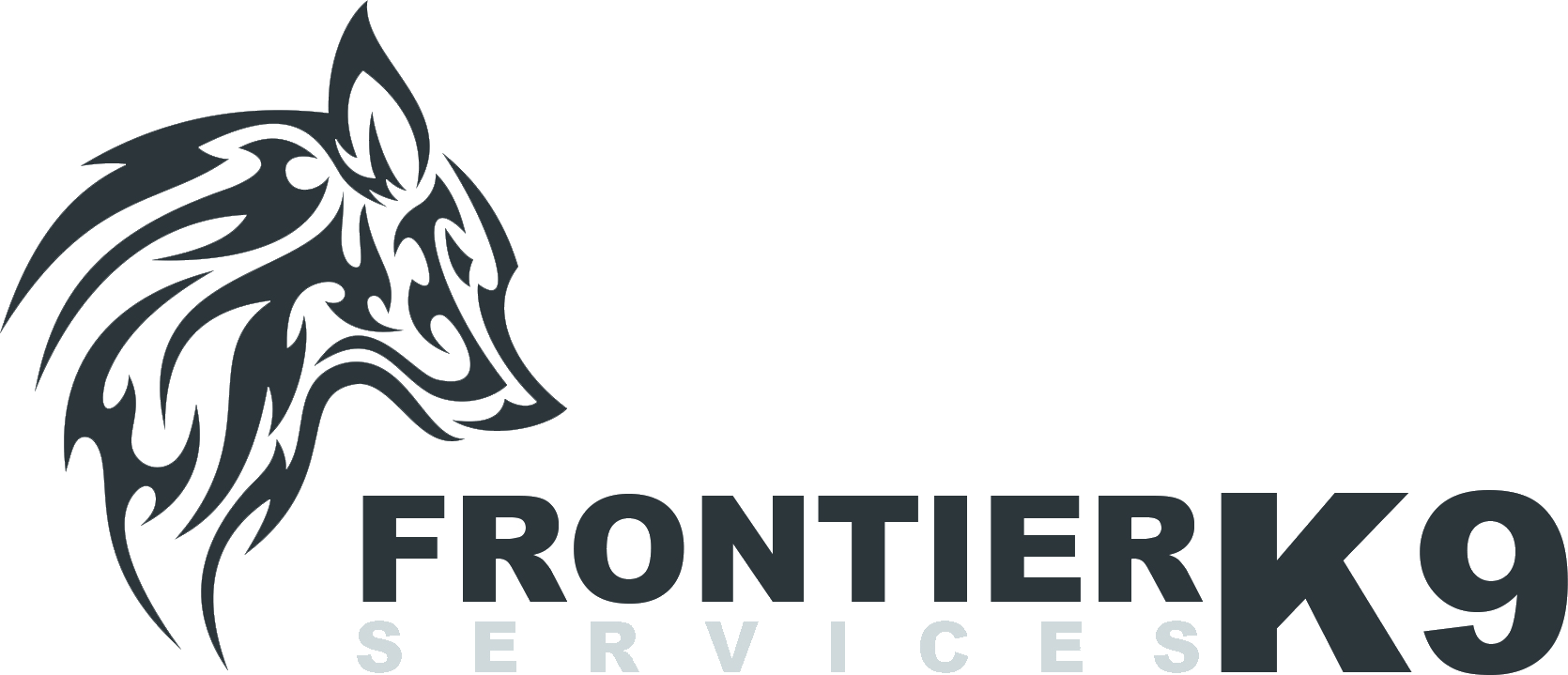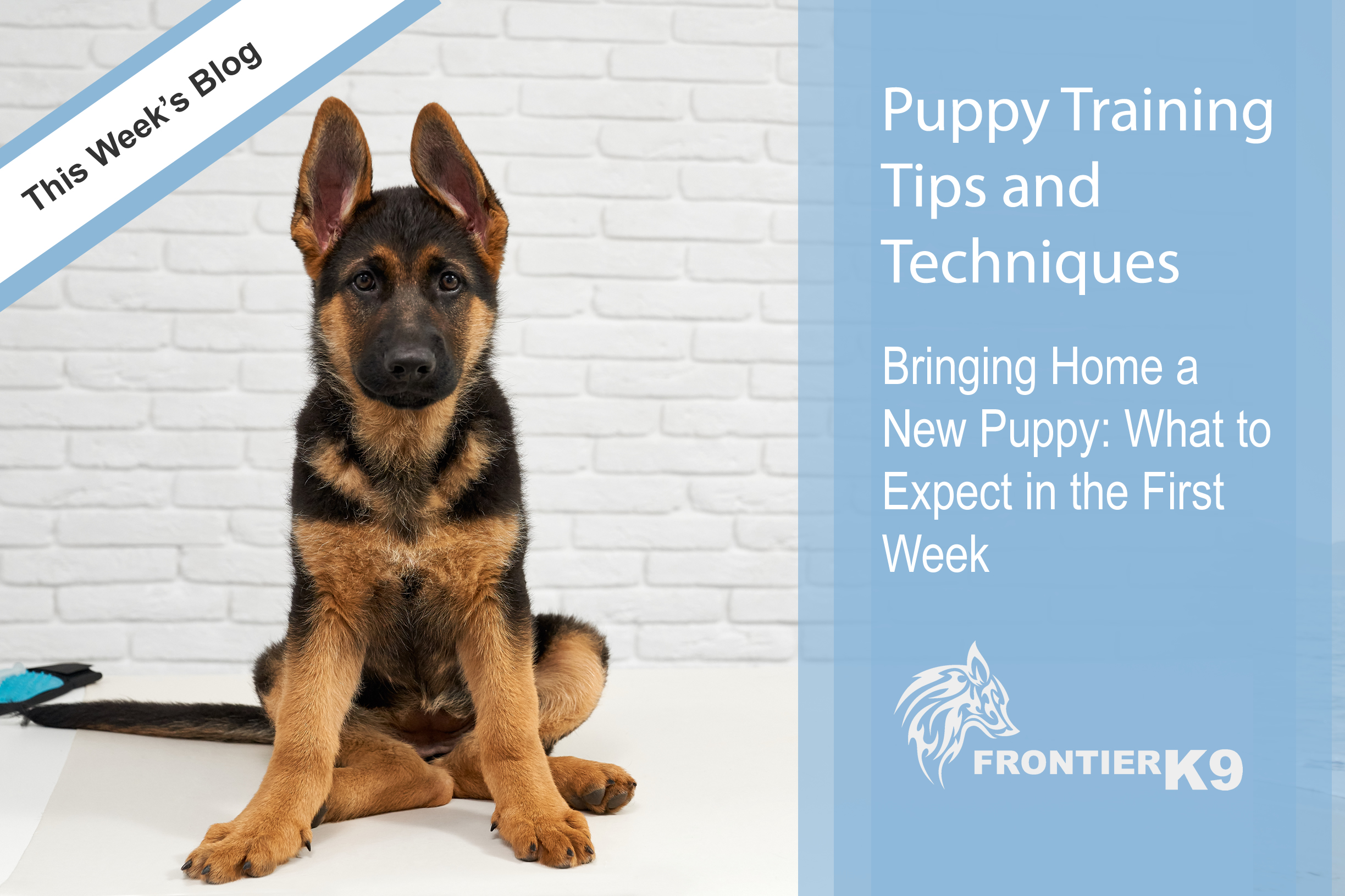Hello and welcome to Frontier K9 Services latest blog. We are about to embark on a series of blogs about Puppy Training and we thought we would start at the very beginning.
Welcoming a new puppy into your home is an exciting and joyful experience. However, it also comes with its own set of challenges and responsibilities. The first week is crucial for setting the foundation for your puppy’s future behavior and creating a strong bond. Here’s what you can expect and some tips to help you navigate this exciting time.
Day 1: The Homecoming
Preparing Your Home
Before your puppy arrives, ensure your home is puppy-proofed. Remove any hazardous items, secure loose wires, and have a designated area ready for your puppy to sleep and relax. A cosy bed, some chew toys, and a water bowl should be in place.
The First Few Hours
Your puppy may feel overwhelmed and anxious during the first few hours. Give them time to explore their new surroundings at their own pace. Avoid overwhelming them with too many new faces and activities.
Introductions
Introduce your puppy to family members one at a time to prevent overstimulation. If you have other pets, introduce them in a calm and controlled manner, preferably in a neutral space.
Days 2-3: Settling In
Establishing a Routine
Puppies thrive on routine. Establish a daily schedule for feeding, potty breaks, playtime, and sleep. Consistency helps your puppy feel secure and understand what to expect.
Potty Training
Potty training should begin immediately. Take your puppy outside frequently, especially after eating, drinking, and waking up. Praise and reward them for doing their business outside to reinforce good behavior.
Basic Commands
Start with simple commands like “sit,” “stay,” and “come.” Use positive reinforcement techniques such as treats and praise. Short, frequent training sessions are more effective than longer ones.
Days 4-5: Building Confidence
Socialisation
Expose your puppy to various environments, sounds, and people to help them become well-adjusted adults. Keep these experiences positive and controlled to build their confidence.
Handling
Get your puppy accustomed to being handled. Gently touch their paws, ears, and mouth regularly. This will make grooming and veterinary visits less stressful in the future.
Alone Time
Gradually introduce your puppy to short periods of alone time to prevent separation anxiety. Start with a few minutes and gradually increase the duration.
Days 6-7: Reinforcing Training
Crate Training
If you’re using a crate, continue with crate training. Make the crate a positive space by associating it with treats and toys. Never use the crate as punishment.
Reinforce Good Behavior
Consistency is key. Reinforce good behavior with positive reinforcement and redirect unwanted behavior with gentle corrections. Patience is essential during this learning phase.
Health Check
Schedule a vet appointment for a thorough health check and to discuss vaccinations, deworming, and any questions you may have about your puppy’s health and diet.
Tips for a Smooth First Week
Stay Calm and Patient
Your puppy will pick up on your emotions. Stay calm and patient, and provide plenty of love and reassurance.
Keep It Positive
Use positive reinforcement to encourage good behavior. Avoid punishment, as it can create fear and hinder training progress.
Monitor Your Puppy’s Health
Keep an eye on your puppy’s health and behavior. Any signs of illness or distress should be addressed promptly with your vet.
Enjoy the Journey
The first week with your new puppy is a special time. Enjoy the cuddles, playtime, and the beginning of a wonderful journey together.
By setting the right foundation in the first week, you can ensure a happy and healthy life for your new furry friend. Happy training!
Need my help? I would be delighted to help you. Here’s how you can Get In Touch.


